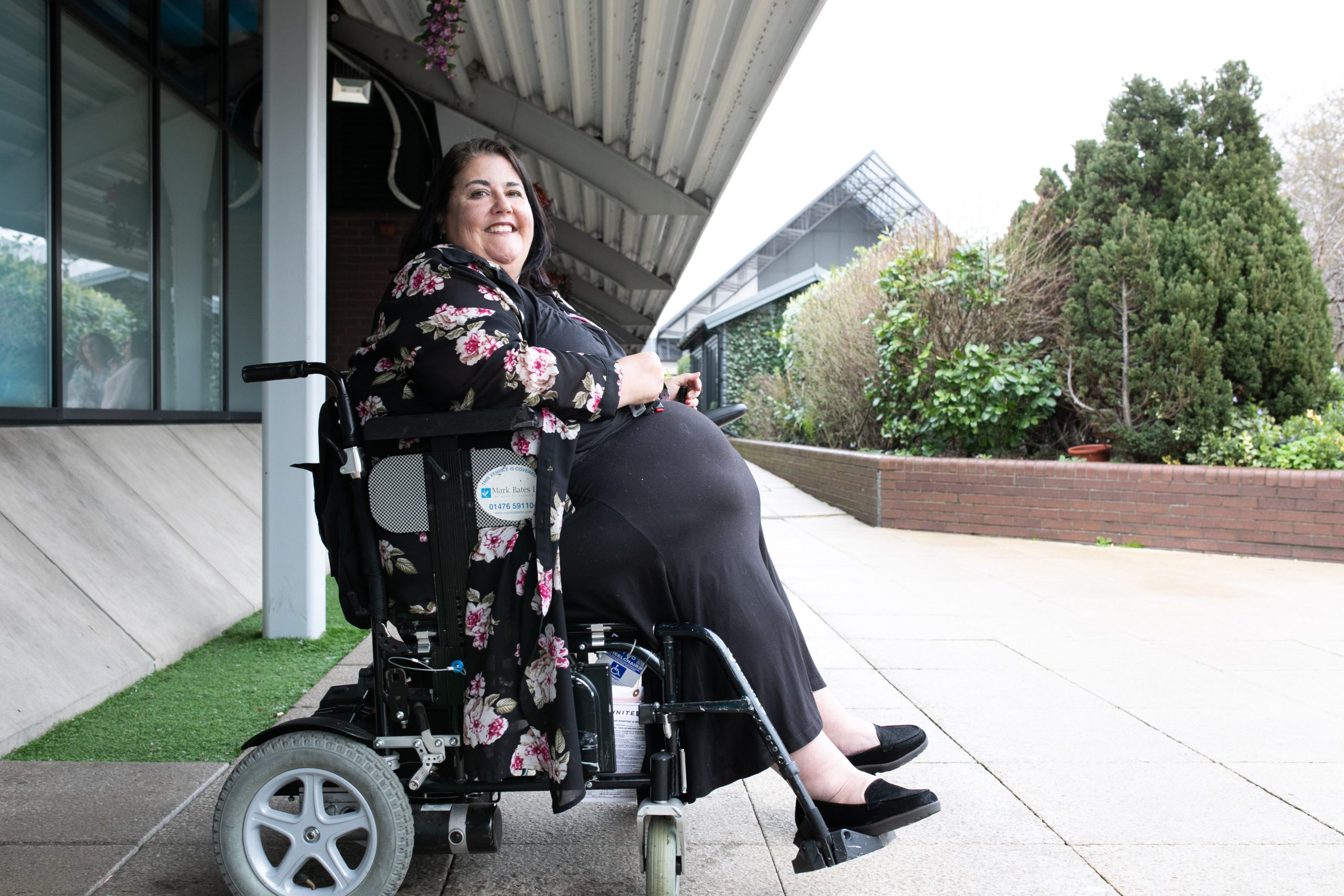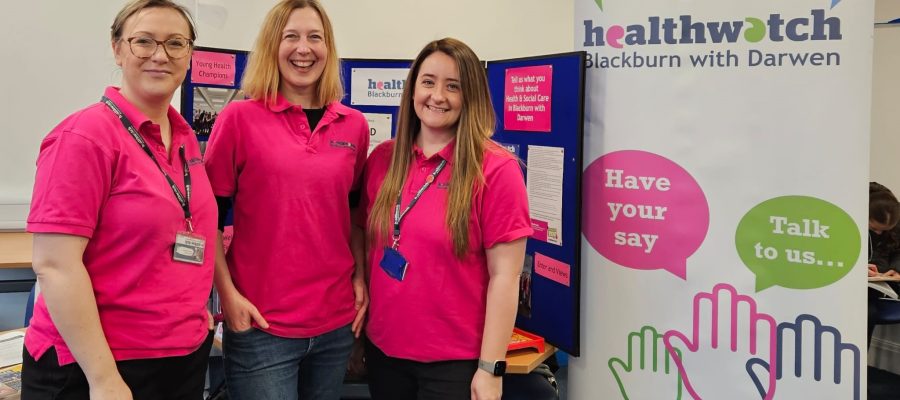
- Over 600 people’s experiences of care reviewed in deep-dive analysis of NHS communication support.
- Two thirds of respondents said communication support had got worse since the start of the pandemic.
- One in four people – including deaf, blind and with mental health conditions – reported being actively refused communication support.
- Healthwatch England says findings are a stark reminder of why NHS England and the 42 new Integrated Care Systems need to ensure all parts of the health and system abide by the Accessible Information Standard.
Healthwatch England warns that health and care services are failing in their legal duty to provide accessible information for people with physical and learning disabilities.
As part of the Your Care, Your Way campaign, between March and May 2022, Healthwatch carried out an online survey of 605 people affected by communication challenges. Whilst the survey participants were self-selected, their views are likely to reflect those of a significant group of people who need communication support.
We found that one in four respondents (28%) said they had been refused help when requesting support to understand information about their healthcare. This included information being provided in formats such as Braille, British Sign Language and easy read.
Not being given information in the right format affected people’s mental health and wellbeing (38%), meant they missed out on important information about their health (29%) or meant that they could not contact a service they needed (27%).
Respondents also reported that the quality of communications from NHS and social care services had got worse over the last two years. Two-thirds (67%) felt that the way health and care services communicate with them had got worse or slightly worse over the course of the pandemic.
It is not just people with sensory impairments or learning disabilities who are affected by this issue.
A fifth (22%) of those who reached out to Healthwatch to share their experiences identified themselves as having a mental health condition, such as depression or anxiety.
Of these people, 35% reported they rarely or never get the support they need to understand healthcare information or communicate with staff. The majority of them (70%) also said that the lack of information in a format that they could understand had a further impact on their mental health and wellbeing.
Accessible Information Standard Review
The findings come as NHS England (NHSE) are conducting a review of the Accessible Information Standard (AIS), a legal requirement which was created in 2016 to ensure all publicly funded health and social care providers meet the information and communication needs of people who are deaf, blind or have a learning disability. Publication of this review is expected later in the year with updates to be implemented by April 2023.
Earlier this year, Healthwatch England uncovered that many health and social care providers significantly failed their duty to ask about people’s communication needs and then act on this information.*
The patients’ champion joined forces with leading disability organisations, including RNIB, RNID, Mencap and SignHealth, to inform the long-awaited review of the AIS. The coalition called on NHSE to take on board their recommendations, including stronger accountability across services to protect people’s rights to accessible information.
Sarah Johns, CEO of Healthwatch Blackburn with Darwen said “ Healthwatch Blackburn with Darwen play an active part on the Blackburn with Darwen Learning Disabilities Partnership Board and one of our key priorities as a partnership is to ensure that health inequalities faced by people with learning disabilities are addressed, working together with health colleagues. Full compliance with the Accessible Information Standard at a local level is needed to give vulnerable residents equal access to healthcare and improved life chances.”
Louise Ansari, national director at Healthwatch England said: “Our findings are a stark reminder that some of the most vulnerable people in our society are still excluded from access to healthcare because they communicate in British Sign Language or they need information in visual formats. And this is despite that fact that their rights to accessible information are protected in law.
“People’s right to accessible information should be based on their communication needs, not just on a diagnosed disability. For instance, people who have a mental health condition or are waiting for a diagnosis should have a right to request communication support in the same way as people who have a sensory loss or a learning disability.
“If people cannot get information about their healthcare they understand, this can have a significant impact on their mental health and can lead to them missing doctor’s appointments or taking the wrong medication, putting them in danger.
“As we are waiting for the review of the Accessible Information Standard, we strongly advise that NHSE and the newly created 42 integrated care systems ensure equitable access to healthcare for everyone.”
I find healthcare information overwhelming
Trina, 65, from Cromford, Derbyshire, was diagnosed with a post-traumatic stress disorder few years ago and suffers from anxiety. As a result, she often gets overwhelmed with the amount of the written information she receives from health and social care services.
She said: “I find written information overwhelming. There are too many words, too much jargon, those big fancy words, which I don’t understand. I would really benefit from having letters from health and social care services in an easy read format. This means fewer words, information broken down in chunks and to the point.”
“When I’m asked to go online to get some information and advice, there are just too many options to choose from. Being asked to use services online stresses me out.”
She told us that anytime she speaks to various services, she needs to tell each about her condition all over again. “Services are not joined up. They don’t seem to have records of my conditions and my communication needs. This lack of joined up support also takes a toll on my mental health.”
Fighting for accessible information
Sarah, 46, from Narborough, Leicestershire, was diagnosed with Bardet-Biedl syndrome, a disease that affects sight at the age of 23.
Although Sarah needs to receive information via email (which can be read by a reader on her phone) or as an audio recording, most healthcare services communicate with her via written letters.
“Information about my chemotherapy was provided in eight printed booklets. I didn’t have any idea what the process would involve or what the side effects of the treatment would be,” until a nurse went out of their way to email the information. “Even after I showed up with my guide dog, they still posted (the information) to me.”
“It’s so frustrating because it’s putting me in danger. I was supposed to be shielding during Covid, and I got a letter about it in the post. If not for my mother telling me, I would not have known about how dangerous it was for me to leave my house.”
Through a contact at the Royal National Institute of Blind People (RNIB), Sarah linked up with a lawyer working to improve the implementation of the AIS. In March 2021, Sarah won a judicial review against the NHS, demanding access to Covid vaccine and shielding letters in a format she understands.
Further info on the campaign.
A deep dive analysis of the experiences of 605 respondents in England, who said they required communication support from health and care services, shared with Healthwatch between 26 February and 29 May.
In total 754 people responded to our survey.
- 605 reported that they needed some communications support to understand their care.
- 489 outlined their specific condition:
- 73 with sight loss
- 143 with hearing loss
- 112 mental health challenges
- 60 with a learning disability
- 101 had another condition that affects their ability to communicate or understand information.
*About our Freedom of Information Request
Between September and November 2021, Healthwatch England submitted freedom of information (FoI) requests to around 220 NHS trusts to gather details on compliance with the Accessible Information Standard (AIS). Out of the 139 NHS trusts that responded, only a third, 35%, said they fully complied with the AIS standard.
More information https://www.healthwatch.co.uk/news/2022-02-21/accessible-information-standard-findings-our-foi-requests



